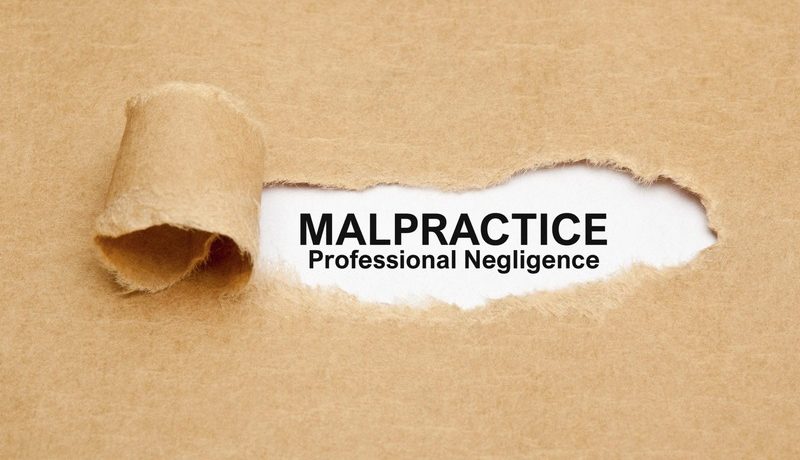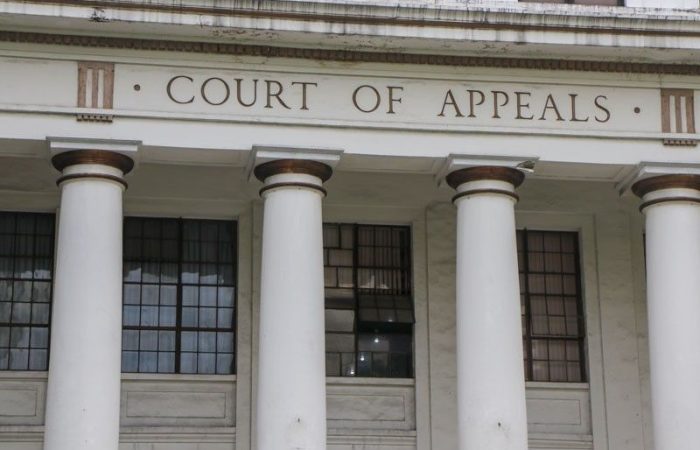By Susann Nordvik, Katarina Nguyen, and Steven Krieger
“Every attorney shall be liable to his client for any damage sustained by the client through the neglect of his duty as such attorney.”[1] This statutory provision stands for the common sense principle that attorneys are responsible for the actions they take as counsellors and representatives of their clients—just like everyone else who acts on behalf of others or who interacts with others. However, because of the place where this principle stands, at the intersection of many areas of the law, this statutory obligation is not as straightforward as it appears.
In civil situations, which is the area where most people will come into contact with, or require the services of, attorneys, a standard of ordinary care applies.[2] However, what happens when a client believes that his or her counsel has breached that ordinary duty of care?
To prevail on a claim of legal malpractice, a client must establish the following:
- That the client employed the attorney;
- That the attorney failed to perform his or her services with an ordinary standard of care; and,
- The client was damaged as a proximate result of the attorney’s failure to perform.
Employment of Counsel
The relationship between an attorney and client has been considered to be the most sacred relationship in the law.[3] Because of the nature of the legal profession, it is possible that an attorney could be “employed” simply based upon the meting out of legal advice, even if no money ever changes hands, and regardless of whether a formal contract is formed. However, generally speaking, because of the vagaries of legal situations, the formation of an attorney-client relationship requires actual interaction between the parties as opposed to the mere review of generic information, such as reading an article on an attorney’s website. The formation of an attorney-client relationship requires the assent of both parties, either directly or impliedly.[4] In formal terms, this relationship is known as “contractual privity.”[5]
Nevertheless, it is possible that a third party could be what is known in the legal world as a “third party beneficiary” of legal services, and therefore, can stand in the shoes of the client for purposes of a legal malpractice claim. For example, if a person engages an attorney to make out a will, and in the process names a specific beneficiary, that beneficiary is essentially the intended beneficiary of the agreement between the lawyer and the client. If the attorney fails to properly safeguard the estate while making a will so that the assets do not pass to the client’s intended beneficiary, that beneficiary may be able to state a claim for malpractice against the attorney if the attorney cannot correct the error after the death of the testator. This is precisely what happened in the case of Thorsen v. Richmond Society for the Prevention of Cruelty to Animals.[6]
In Thorsen, the Richmond SPCA was able to maintain an action for legal malpractice on the grounds that the SPCA, which was the testator’s sole surviving beneficiary, was unable to receive the testator’s bequest of real property due to the error of the attorney Thorsen when preparing the will. As a result, the property passed intestate to other members of the testator’s family, thereby damaging the SPCA and depriving it of the full bequest.[7]
The Virginia Supreme Court held that the third-party beneficiary doctrine was a well-reasoned exception to the privity requirement, thereby permitting a party to proceed with a malpractice action.[8] However, if a third party cannot claim beneficiary status, the rule of contractual privity will prevent that third party from asserting a malpractice claim,[9] and a malpractice claim cannot be assigned by a client to another party.[10]
However, in 2017, the year after the Court ruled on Thorsen, the Virginia legislature enacted Va. Code § 64.2-520.1, which arguably has the impact of undoing the Court’s ruling in the estate planning context. The statute says that only the individual or their personal representative can maintain an action for legal malpractice in the estate planning context, the cause of action for which accrues upon the completion of the representation, unless there is a specific reference to subsection (B) “expressly grant[ing] standing to a person who is not a party to the representation.”
While a third-party could bring a legal malpractice claims in other contexts, a client cannot assign a legal malpractice claim to someone else.[11] This is due to the court’s concern that legal malpractice claims would be sold and traded like a commodity, which means that an attorney could be sued for malpractice by someone they never met before and for whom they never rendered legal advice or services.[12]
Falling Below the Standard of Care
The employment of counsel establishes a duty on the part of the attorney to the client, and failing to meet, or falling below the standard of care constitutes breach of the duty owed the client. The standard of care is based on what the ordinary, prudent attorney would do under the same or similar circumstances. In fact, the Virginia Supreme Court has stated: “[The attorney] is not to be answerable for every error or mistake, but on the contrary, will be protected if he acts in good faith, to the best of his skill and knowledge, and with an ordinary degree of attention.”[13] In addition, a negligent attorney can also apply the defense of contributory negligence in the context of legal malpractice cases, or that the client’s own negligence contributed to the client’s resulting damages.[14]
An illustration of this comes into play when an attorney is asked to make a determination about the path the courts will take in an unsettled area of the law. The attorney cannot “look into a crystal ball” and foresee what will happen, but he or she can review the existing law and make a reasoned judgment about how a court might rule. In Virginia, there is no blanket “judgmental immunity,” however, the Supreme Court has held that “if an attorney exercises a ‘reasonable degree of care, skill, and dispatch’ while acting in an unsettled area of the law, which is to be evaluated in the context of ‘the state of the law at the time’ of the alleged negligence, then the attorney does not breach the duty owed to the client.”[15]
Resulting Damages
“‘Damage is an essential element of a cause of action. Without some injury or damage, however slight, a cause of action cannot accrue.’” [16] An injury may be something intangible, such as the loss of the right to pursue a legal claim because of an attorney’s failure to take timely action to sue;[17] or an injury may be a tangible effect, such as having a judgment entered against the client, even if the client had not paid the judgment, due to an attorney’s manifest error.[18]
However, it should be noted that in the event that the damage suffered by the client is so financially catastrophic that the client finds himself or herself filing for bankruptcy protection as a result, any claim for legal malpractice that arose prior to the bankruptcy filing would become part of the bankruptcy estate.[19] As such, the future of the malpractice claim is determined by the bankruptcy trustee, who may opt either to prosecute the claim as an adversarial proceeding in the bankruptcy court, or abandon the claim, in which event the claim reverts to the client.[20]
Collectibility is also an issue the courts consider when the damage is the loss of an otherwise viable claim due to the attorneys’ negligence. Collectibility of a claim can act as a limit on “the measure of the legal malpractice plaintiff’s damages to how much the legal malpractice plaintiff could have actually recovered from the defendant in the underlying litigation, absent the attorney’s negligence, not simply to the face value of the lost claim.”[21] This collectibility issue goes to proving the attorney’s negligence was the proximate cause of the client’s damages.[22]
Finally, a potential claimant must understand that as a contract action, only pecuniary losses are considered recoverable damages in a legal malpractice claim, but this includes losses that are “reasonably foreseeable when the contract is made.”[23] Non-pecuniary losses, such as pain and suffering or emotional distress are not recoverable.[24] Likewise, punitive damages cannot be recovered “in the absence of an independent, willful tort giving rise to such damages.”[25]
Making a Timely Legal Malpractice Claim
One of the most important aspects of any legal claim is making the claim in a timely manner. This requires taking action before the “statute of limitations” runs out. A statute of limitations is a time period created by the legislature in which a legal action must be filed in court or the right to file the claim is lost forever. The purpose of statutes of limitations is to provide sufficient time for a potential plaintiff to take action, but not allow so much time to pass that the claim becomes stale, witnesses become difficult to locate, or memories of the events fragment. The time periods involved may appear to be somewhat arbitrary, but the time periods themselves are meant to strike a balance between the rights of an injured party, the interests of justice in a fair and complete hearing, and the interest of a potential defendant in finality.
Although there are notes of tort law in legal malpractice claims, the courts have largely concluded that the duty of the attorney arises out of the agreement to perform services for the client. Consequently, the claim is a contract claim and governed by the limitations period for contracts.[26] This time frame is 3 years for an oral contract and 5 years for a written contract.[27]
It is nevertheless possible to allege an “independent willful tort,” such as fraud, if the conduct of the attorney is of a type that would ordinarily be considered tortious, and the duty that the lawyer owes to the client arises in a manner not solely attributable to contract.[28] As this concept suggests, the legal doctrines applicable to such unique situations can be highly complex, and necessitate analysis by experienced counsel to determine whether a given case involves a tort claim in addition to a contract claim.
The Code of Virginia states that the limitations period for contract claims commences on the date that the breach occurred, not the date that the breach was discovered by the client.[29] Therefore, it is important to act quickly once you realize that your attorney or former attorney may have committed malpractice. Nevertheless, the Supreme Court has also held that the “continuing representation” rule applies in legal malpractice claims that tolls the statute of limitations. “[W]here there is an undertaking which requires a continuation of services, the statute of limitations does not begin to run until the termination of the undertaking. . .This special rule is applicable to a continuing agreement between attorney and client.”[30] This prevents the client from being placed in the awkward position of having to take action against an attorney who is still performing services under the original agreement. However, the termination of the last services performed on the particular undertaking is what controls the start of the statute of limitations period, even if the attorney represents the client for other matters.[31]
Applying These Requirements to Civil Litigation and Criminal Defense Cases
As discussed above, there is a certain degree of latitude given to the lawyer who attempts to discern what a court will do, but chooses wrongly. This reasonable judgment rule commonly arises in litigation matters. These situations are often referred to as “cases within cases,” because in order to establish damages for a lost claim against a litigation opponent, it must first be established that but for the attorney’s malpractice, the client would have prevailed in the underlying action. This often necessitates a “mini trial” of the underlying claim to establish that the malpractice claimant would have won that original case.[32] Consequently, whether or not your claim for litigation malpractice is a truly winnable case can be open to interpretation.
Likewise, the threshold for an attorney malpractice claim in a criminal case is somewhat more robust than in other situations. This is because the client must establish that he or she obtained post-conviction relief, and was legally innocent, entitling the client to release from incarceration.[33] Generally this rule supports the public policy of the Commonwealth that “a criminal defendant may not profit from a crime in a subsequent legal malpractice action.”[34]
Like most situations involving complex legal issues, claims are evaluated on a case-by-case basis, taking into consideration all of the facts that are unique to you. Therefore, be sure to consult with competent counsel if you feel that you have a potential claim against an attorney that has represented you by contacting us for a consultation.
* * * * *
[1] Va. Code, § 54.1-3906.
[2] Virginia does not have certifications for legal specialists, therefore, the general standard applies for all attorneys authorized to practice in the Commonwealth.
[3] Shipman v. Kruck, 593 S.E.2d 319, 324 (Va. 2004) (noting the “special trust and confidence inherent in the attorney-client relationship,” and quoting Allied Productions, Inc. v. Duesterdick, 232 S.E.2d 774, 776-77 (Va. 1977)).
[4] Bankers Credit Service of Vermont, Inc. v. Dorsch, 343 S.E.2d 339, 341 (Va. 1986) (“In order for an agreement to be binding, the parties must have assented to its terms. This assent, however, need not be communicated by express words, but may be inferred from the conduct of the parties.”).
[5] See Ayyildiz v. Kidd, 266 S.E.2d 108, 112-13 (1980) (noting that an adverse party cannot institute a legal malpractice claim, as adverse parties are not in contractual privity with the attorney, nor are they intended beneficiaries of the agreement between lawyer and client).
[6] 786 S.E.2d 453 (Va. 2016).
[7] Id. at 457.
[8] Id. at 463; cf Copenhaver v. Rogers, 384 S.E.2d 593, 596 (Va. 1989) (noting that “[t]here is a critical difference between being the intended beneficiary of an estate and being the intended beneficiary of a contract between a lawyer and his client.”) As Copenhaver indicates, although alleging third-party beneficiary status may permit a case to proceed, it is still necessary to prove that the individual claimant was specifically intended to benefit under the contract for legal services. Such a situation may occur where a parent engages an attorney for the representation of an adult child, for example. Although the child may also be considered a client of the attorney from a professional ethics standpoint, the child is clearly the intended beneficiary of the agreement between parent and lawyer.
[9] Johnson v. Hart, 692 S.E.2d 239, 243-44 (Va. 2010).
[10] MNC Credit Corp. v. Sickels, 497 S.E.2d 331, 333 (Va. 1988).
[11] Id. at 334.
[12] Id. at 333-34.
[13] Glenn v. Haynes, 66 S.E.2d 509, 512-13 (Va. 1951).
[14] Lyle, Siegal, Croshaw & Beale, P.C. v. Tidewater Capital Corp., 457 S.E.2d 28, 32, 249 Va. 426, 432 (Va. 1995).
[15] Smith v. McLaughlin, 769 S.E.2d 7, 14 (Va. 2015).
[16] Shipman v. Kruck 593 S.E.2d 319, 323 (Va. 2004) (quoting Keller v. Denny, 232 Va. 512, 520, 352 S.E.2d 327, 332 (Va. 1987)).
[17] Williams v. Joynes, 677 S.E.2d 261, 265 (Va. 2009).
[18] Shipman, 593 S.E.2d at 326 (“A client who suffers the entry of a judgment against him indeed suffers a legal injury or damage”)..
[19] See In re Sheikhzadeh, Case No.: 14-14219-BFK at **10-11 (E.D. Va. Bankr. Jun. 26, 2018); see also Shipman at 323 (the cause of action accrued during the bankruptcy petition, which vested in the Bankruptcy Trustee).
[20] Property held by the debtor prior to the filing of the petition, and scheduled under Section 521 of the Bankruptcy Code, reverts to the original holder after discharge and closure of the case if the property is not pursued by the trustee for the purpose of addressing the debtor’s debts through the bankruptcy estate. However, bankruptcy is a complex field of law, and questions surrounding choses in action where a bankruptcy is involved should be addressed by competent bankruptcy counsel.
[21] Smith, 289 Va. at 261, 769 S.E.2d at 17 (Va. 2015).
[22] Id.
[23] Id. at 265 (What damages are recoverable in legal malpractice is governed by the law concerning damages in breach of contract cases, and thus “‘are limited to those losses which are reasonably foreseeable when the contract is made’” (quoting Kamlar Corp. v. Haley, 224 Va. 699, 706, 299 S.E.2d 514, 517 (Va. 1983)).
[24] Smith, 769 S.E.2d at 19.
[25] Id. (quoting O’Connell v. Bean, 556 S.E.2d 741, 743 (Va. 2002)).
[26] Oleyar v. Kerr, 225 S.E.2d 398, 400 (Va. 1976).
[27] Virginia Code, § 8.01-246.
[28] Goodstein v. Weinberg, 245 S.E.2d 140, 142 (Va. 1978).
[29] Virginia Code, § 8.01-230.
[30] McCormick v. Romans, 198 S.E.2d 651, 654-55 (Va. 1973); see also Keller v. Denny, 352 S.E.2d 327, 330 (1987) (holding that “the breach of contract or duty occurs and the statute of limitations begins to run when the attorney’s services rendered in connection with that particular undertaking or transaction have terminated.”).
[31] Shipman, 593 S.E.2d at 324 (Va. 2004) (holding “[t]he proper inquiry is not whether a general attorney-client relationship has ended, but instead, when the attorney’s work on the particular undertaking at issue has ceased”); see also Moonlight Enters., LLC v. Mroz, 293 Va. 224, 232-33, 797 S.E.2d 536, 540 (Va. 2017).
[32] See e.g., Smith, 796 S.E.2d at 10-11.
[33] Id. at 13.
[34] Desetti v. Chester, 772 S.E.2d 907, 910 (Va. 2015) (citing Taylor v. Davis, 576 S.E.2d 445, 447 (Va. 2003); Adkins v. Dixon, 482 S.E.2d 797, 801-02 (Va. 1997)).





If a client recovers money from Virginia Bar client protection fund can they still sue for same amount in civil court? The Bar rules seem to say no. What if client doesn’t tell court or his attorney until other attorney finds out finally by opening old mail from Bar he thought was junk. I have proof. Need help with this not a theoretical issue.
There are some of your responsibilities as a client to your attorney. A lawyer shall abide by a client’s decision whether to settle a matter.
I appreciated it when you shared that a client can file a lawsuit if there is any legal malpractice occurred during the process. It is best to work with another attorney who can guide you through the process. I would like to think if someone is planning to sue his lawyer, he should consider working with a reliable attorney who is experienced in the area.
Love this! Thank you for sharing!
Thanks for the information about civil litigation services. My husband and I would like to get a lawyer to help us. Our business partner is trying to take over the company.
@Sarah – Sure. Feel free to call the office and we’ll try to be helpful.
I am looking to file a lawsuit against my former attorney I hired for my first criminal charge. I paid him in full between the end of June, beginning of July. My court date was November 4th. I never spoke with him (telephone or in person) until the court date. I was unprepared, uninformed and completely blindsided. I was not given any options. He told me that if I did not take the plea offered, I was going to end up with a felony…although my case was very strong. I did not understand and I was scared. I took the plea against my better judgement because I was intimidated. I found out 2 days later, once I called the gun shop owner (my key witness) that my attorney never even contacted him. He did absolutely nothing to build a criminal defense case for me and allowed me to come into my very first criminal court case unprepared, uninformed and scared. Due to all of this, my case was never heard before a judge and I took a plea that I did not deserve. My arresting officer was even on my side, going to bat for me. I am extremely upset about all of this.
@Brandi – Sure, we can try to help. Please give us a call at your convenience.
I wanted to know if you prosecute legal malpractice cases or defend against? I am looking someone to represent me for possible legal malpractice against my attorney. Thanks.
@Ronda – We handle both prosecute and defend. Feel free to contact us if you’re still looking for help.
I need assistance in forming a claim against Norfolk VA. Attorneys for frsudulant misrepresentation of negotiated settlements with numerous asbestos companies.
I have all of the paperwork needed to proceed forward with a breach of duties embezzlement, fraud, theft, misrepresentation, doctoring paperwork including changing court case numbers on certain cases.
Forged documents.
It’s endless amount of wrongdoing it’s almost too overwhelming.
I need an attorney on a contingency bases.
Please advise on what steps I need to take to initiate a suit.
Thank you!
Byron Peters
I hired a bankruptcy attorney in Roanoke Va.
He was handling my business Chapter 11 for my S Corporation.
This attorney has made sure the chapter 11 failed and helped my estranged wife to steal and hide about 96% of the assets and 100% of the money they embezzles.
The attorney filed fraudulent paperwork in the court system. The two of them forged my name and placed it in the federal court system to be used against me as extortion and blackmail.
Now the lot are using extortion, blackmail, duress and harassment
I am going to challenge Smith v. McLaughlin, 769 S.E.2d 7, 14 (Va. 2015), at the US Supreme Court.
@Joseph – Please let us know how it goes!
Seeking counsel/representation for legal malpractice based on insufficient discovery, preparation, representation of case to brain injured client resultant in a low settlement of case and financial consequences to client.
I am seeking an attorney for civil action against my trial attorney for ineffective counsel for failing to investigate the 911 Call, which exonerated me.
Also, I would be seeking to file suits against the perjured complainant, and the police dept/commonwealth for withholding exculpatory/exonerating evidence from me.
Please contact me. Thanks
@Samuel — Thanks for you comment and for reaching out. Keep me posted on your progress.
Samuel: watch the statute of limitations closely A) because it is an affirmative defense. B) you may well have a Brady Violation against the prosecutors for failure to disclose the 911 call if it came about in a criminal trial as well as ineffective assistance. 42 U.S.C. Section 1983 is a tough one because of immunity. The Police officers are the easiest. Try Victor M. Glasberg if its in Virginia. Good luck.
Written contracts have a 5-year statute of limitations from when that contract was terminated. I have until 6-1-2020 to file, I believe.
My contract for criminal representation was for $27,000 plus the $3,000 retainer. Moreover, my trial attorney failed to investigate the 911 Call and the 911 Event History when I told her to do so multiple times! She didn’t investigate because she thought that evidence was deleted after “28 days”. Boy, she lied to me and caused much damage to my life because of her breach of contract to not investigate that evidence.
Written: 5 yrs. §8.01-246(2); Oral: 3 yrs. §8.01-246(4)
https://codes.findlaw.com/va/title-8-01-civil-remedies-and-procedure/va-code-sect-8-01-246.html